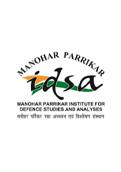Russia-Iran Nuclear Connections
Russia's concern over Iran's nuclear programme is increasing with every passing day. Iranian authorities are showing un-willingness to accept Russia's proposal to enrich uranium in Russian territory. Russia is trying to resolve an international crisis over Iran's suspected nuclear weapons programme, though its position on Iran has rhetorically moved closer to the European "Troika" (France, Germany, UK). Russia agreed to Iran's referral to the UN Security Council on the condition that the council would take action only after the March 6 IAEA meeting.
- Nivedita Das Kundu
- February 10, 2006







